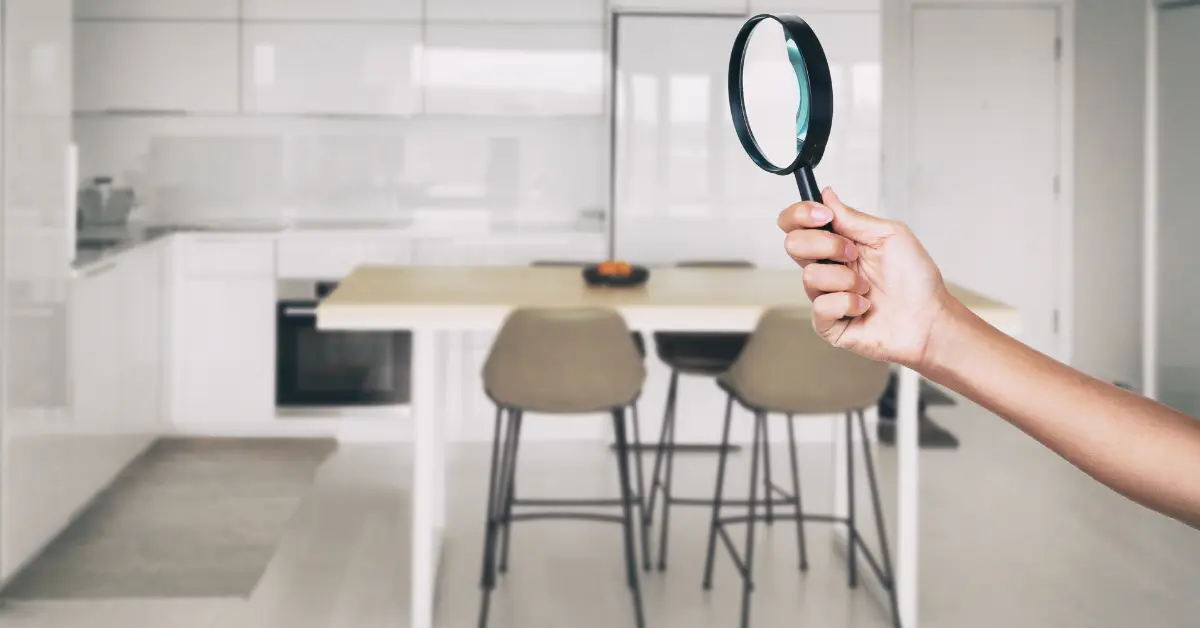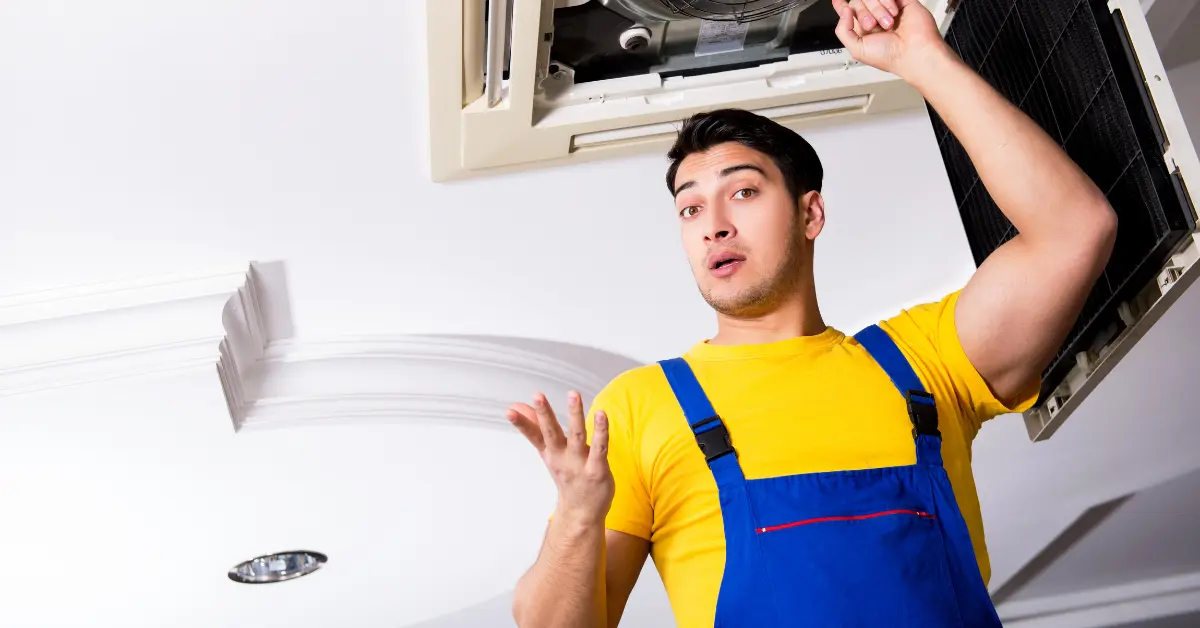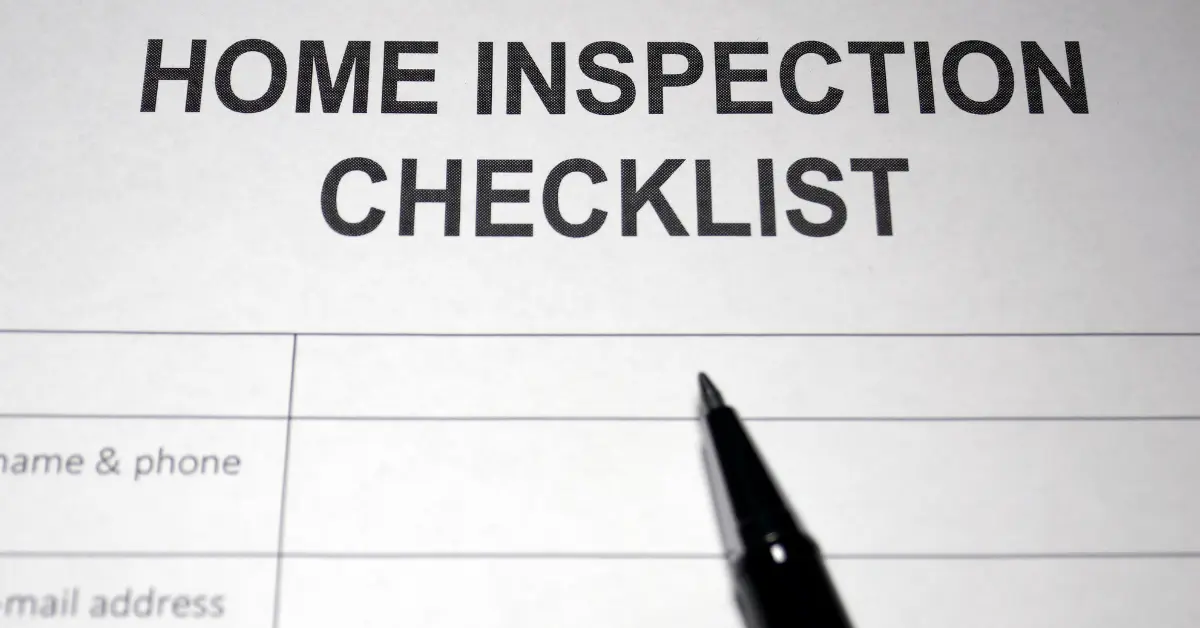No, tenants do not have to be present during apartment inspections unless stated otherwise in the lease agreement. Inspections are typically conducted by landlords or property managers to ensure the property is well-maintained and to identify any potential issues that need attention.
However, landlords are required to provide tenants with proper notice before entering their apartments for inspections, unless it’s an emergency situation. The notice period and the frequency of inspections depend upon the state laws and the terms mentioned in the lease agreement.
It’s always advisable for tenants to communicate with their landlords to clarify any concerns or questions regarding apartment inspections. We will discuss more on when inspections may happen, what to expect during one, and how to prepare for it.

Understanding The Purpose Of Apartment Inspections
As a tenant, it can be stressful to hear your landlord has arranged an apartment inspection. Nonetheless, apartment inspections are necessary, and it is crucial to understand their purpose beforehand.
Why Apartment Inspections Are Necessary
Apartment inspections are essential for several reasons. Here are a few explanations for why they are necessary:
- To check if the tenant is following the lease agreement.
- To identify any potential a health and safety hazards.
- To assess any potential maintenance problems or repairs.
- To check for any unauthorized occupants pets or any damages to the property.
Types Of Inspections Conducted By Landlords
Landlords usually carry out three types of inspections. It’s essential to know what each inspection entails.
- Move-in inspections: Done before the tenant moves in; this type of inspection checks for any issues to be repaired or fixed beforehand. This inspection is vital so tenants are not held liable for any pre-existing issues.
- Routine inspections: During the lease period, routine inspections are usually conducted every six months to ensure that the tenant is following the lease agreement and no damage has been done to the property.
- Move-out inspections: Done when the tenant moves out; this inspection checks the property’s condition to decide if the tenant is eligible for the security deposit’s return.
Legal Requirements For Apartment Inspections
All landlords have legal rights to carry out apartment inspections. The law mandates inspections must meet certain conditions. Here are a few examples:
- Landlords must provide reasonable notice before the inspection.
- Landlords must conduct inspections during reasonable hours.
- Inspections should not include any intrusive activities.
- Inspections must not interfere with the tenant’s right to peaceful enjoyment of the property.
Understanding the importance of apartment inspections can help tenants prepare for them. As long as landlords follow the legal requirements, there is nothing to fear, and inspections can help tenants ensure the apartment is always in top-notch condition.
When Tenants Need To Be Present For Apartment Inspections

Reasons Why Tenants Need To Be Present For An Inspection
When you’re renting an apartment, the landlord or property manager may want to inspect the apartment periodically. During these inspections, they usually check for any damages or repairs needed in the unit.
As a tenant, you might wonder whether you need to be present for the inspection, or if you can just leave the keys and let them do their work.
However, there are several reasons why you should be present during the inspection:
- Ensure your rights are respected: When you’re present for the inspection, you can make sure that the landlord or property manager respects your rights as a tenant. You can ensure that they don’t go through your personal items or violate your privacy in any way.
- Answer any questions: If the landlord or property manager needs to ask you any questions about the apartment or its condition, you can be there to answer them. This can help prevent any misunderstandings and make the inspection go more smoothly.
- Be aware of any issues: If there are any issues or damages found during the inspection, you can see them firsthand and discuss them with the landlord or property manager. This can help prevent any disputes about damages that may arise later.
Common Scenario Where The Tenant Must Be Present
In some situations, the tenant must be present for the inspection, such as:
- Move-in and move-out inspections: When you’re moving in or out of an apartment, both you and the landlord or property manager should be present for an inspection of the unit. This inspection is usually done to document the condition of the apartment before and after your tenancy.
- Repairs and maintenance: If the landlord or property manager needs to do any repairs or maintenance in the apartment, they may need to inspect the unit before and after the work is done. In this case, you should be present to let them in and to ensure that the work is completed satisfactorily.
Tenant’S Rights During The Inspection
As a tenant, you have certain rights during an inspection, such as:
- Notice: The landlord or property manager must give you reasonable notice before the inspection. This notice should be in writing and should state the reason for the inspection and the date and time it will occur.
- Respect for privacy: You have the right to privacy in your home, and the landlord or property manager cannot enter your apartment without notice or without your permission. During the inspection, they must respect your privacy and only enter areas that need to be inspected.
- Documentation: The landlord or property manager should document any issues or damages found during the inspection and provide you with a copy of the report. This can help prevent any disputes about damages that may arise later.
It’s important for tenants to be present during apartment inspections to ensure that their rights are respected, to answer any questions, and to be aware of any issues or damages found.
In some situations, such as move-in and move-out inspections or repairs and maintenance, the tenant must be present for the inspection.
Throughout the inspection, tenants have certain rights, including notice, respect for privacy, and documentation.
When Tenants Might Not Need To Be Present For Inspections

Scenarios Where Tenants Can Approve Inspections Without Being Present
As a tenant, it’s natural to be concerned about the intrusion of privacy that can come with an apartment inspection.
However, you may not always need to be present during your inspection. Here are some scenarios where tenants can approve inspections without being present:
- When you have given written consent: If you have given written consent to inspection, the landlord can carry out the inspection even without your presence. Remember to confirm what the landlord will inspect and make sure that you have a copy of the inspection report.
- Emergencies: In the event of an emergency, such as a gas leak or water damage, you do not need to be present for the inspection.
- Routine pest control: During routine pest control activities, you do not need to be present during the inspection unless you have explicit instructions from the landlord that your presence is required.
How To Prepare For An Inspection If You Cannot Be Present
If you cannot be present during an inspection, you can prepare ahead to ensure a thorough and fair inspection. Here are some tips on how to prepare for an inspection when you’re unable to attend:
- Communicate with your landlord: Talk to your landlord about any concerns, issues, or damages that you would like to address before the inspection takes place. This will help ensure that the inspection is smooth and fair.
- Record and document damages: Take photos and notes of any damages, wear and tear, or other issues. This will help you in case there is a dispute regarding damages or cleaning requirements.
- Inform your landlord about repairs: Let your landlord know about any repair requests, such as leaks or faulty appliances, prior to the inspection. This will also help you in case any disputes arise.
- Provide alternative access: If you cannot accommodate the inspection, make arrangements for your landlord to have alternate access to your apartment. For example, you may designate another person to be there during the inspection on your behalf.
Tenant’S Rights After The Inspection
After the inspection, what are your rights as a tenant? Here are the key things to keep in mind:
- Access to inspection report: Ask for a copy of the inspection report from your landlord. You have the right to know what was inspected and what issues were found.
- Repair requests: If the report finds that repairs are necessary, you have the right to request repairs within a reasonable time.
- Dispute resolution: If you disagree with the report or recommendations, you have the right to dispute them with your landlord. Every state has its own dispute resolution process, so be sure to check the local laws.
- Privacy rights: As a tenant, you have the right to privacy. Your landlord should reasonably respect your privacy and dignity during inspections.
Frequently Asked Questions On Do You Have To Be Present For An Apartment Inspection?
Do I Have To Be Present During An Apartment Inspection?
No, it’s not mandatory, but it’s recommended. You can arrange it with the landlord or agent.
What Happens If I’M Not There For The Inspection?
If you’re unavailable, the landlord can still conduct the inspection. They may use their keys to access the property.
Can I Refuse An Inspection If I Am Not Present?
No, you can not refuse if you’re not present since it’s not mandatory to be on the property.
What If My Landlord Enters The Property Without Notice?
Landlords have to give a minimum of 24-48 hours’ notice before conducting an inspection. Breaking this can have legal consequences.
Conclusion
Being present for an apartment inspection is ideal but not always necessary. It’s important to know your rights as a tenant and understand the laws and regulations in your state. If you cannot be present for the inspection, make sure to communicate with your landlord and request a detailed report of any findings.
If you are present, take advantage of the opportunity to ask questions and voice any concerns you may have. Regardless of the situation, make sure to document everything in writing, including any repairs or changes made to the property. By staying informed and proactive, you can ensure a smooth inspection process and maintain a positive relationship with your landlord.
Overall, it’s important to prioritize your safety and well-being while also respecting the property rights of your landlord.
Source: https://www.apartments.com/blog/what-is-an-apartment-inspection
